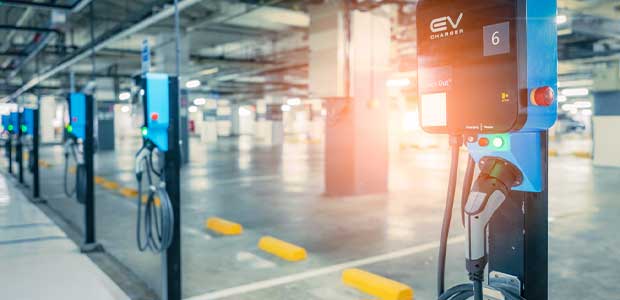
When Will We See a Nationwide Network of Electrical Vehicle Chargers?
It will take some time, but it may happen sooner than you think.
- By Jane Marsh
- Jan 06, 2023
Are you an electric vehicle (EV) owner? If so, you know finding a charging station can be challenging when you are on the road. Although there are thousands of public charging stations across the country, many are in isolated areas or near highways. This is not exactly convenient if you are trying to drive across town.
One solution is to install more EV chargers along major thoroughfares within cities and towns, which will likely happen sooner than you think. Here is more information on when we will see a nationwide network of EV charging stations.
A Nationwide Network of EV Chargers Is Likely to Begin Next Spring
All 50 states—including Washington, D.C. and Puerto Rico—got approval to begin construction on the first nationwide network of electric vehicle charging stations. By next year, hundreds of new EV charging stations will open along major highways in your state. The construction could begin by next spring.
Earlier in 2022, the Biden-Harris administration allocated $5 billion to fund states for EV chargers as part of the Bipartisan Infrastructure package. This project is going to occur over the next five years.
Under the National Electric Vehicle Infrastructure Formula Program, all states have given their infrastructure deployment plans to the Joint Office of Energy and Transportation. Since then, all states have received the green light to start building stations along the national highway system.
What Is the Purpose of the Approval?
This approval is a significant step in building the widespread acceptance of EVs among consumers who often express concerns over the shorter range of EVs and the limited availability of charging stations. Additionally, President Joe Biden is eager to increase sales of electric vehicles to 50 percent and install 500,000 EV charging stations by 2030.
He plans to provide tax credits to families who purchase EVs to make them more affordable. So far, EV sales have doubled since President Biden took office, and there are currently more than two million electric vehicles and 100,000 charging stations on the road. Accelerating the adoption of EVs will reduce the greenhouse gas emissions the transportation industry accounts for in the U.S.
How Will the Network of EV Chargers Begin?
Once the infrastructure begins, states will first focus on installing the more expensive, fast-charging stations on highways. Typically, these cost up to $150,000 to install and take approximately 30 minutes to an hour to charge.
Most of the time, EV owners charge their electric cars at home using a special cord to produce enough energy to power the EV. However, this situation will likely change as less-affluent families that do not have a place to house a charging station start buying EVs. Under the Bipartisan Infrastructure Law, there will be an additional $2.5 billion for local funding to fill the remaining network gaps in disadvantaged neighborhoods and rural areas.
Particular Challenges Present Potential Setbacks
There is still a long way to go before you see a network of EV charging stations. Some states have cited setbacks for various reasons, including a lack of electric grids, equity concerns and supply chain shortages.
For example, Texas, Florida and California have all said they should be able to manage the increased capacity of millions of EVs. However, other states are not certain, which could be a concern in the future.
Mississippi stated there are potential shortages to supply the construction of EV charging stations, which may create a significant setback. Vermont also mentioned these unplanned construction projects could cause utilities to substantially increase if it is going to maintain a reliable grid. Therefore, you may see some delays before the entire infrastructure is complete.
A Project to Benefit Our Nation
The benefits of a nationwide network of EV chargers are clear to everyone. It will be easier for people to buy electric vehicles and be more convenient for them when they do so. For the U.S. government, it means less money spent on gas subsidies and more money it can spend elsewhere.
The public will also benefit from cleaner air and reduced greenhouse gas emissions, not to mention the savings from lower fuel costs. It is important to remember this project will not happen overnight—there are still some challenges before we see an entire nationwide network of EV chargers. As the U.S. continues to be a leader in innovation, you will see an unprecedented improvement that will happen sooner than you think.
About the Author
Jane Marsh is an environmental writer. You can keep up with her work on her site Environment.co.